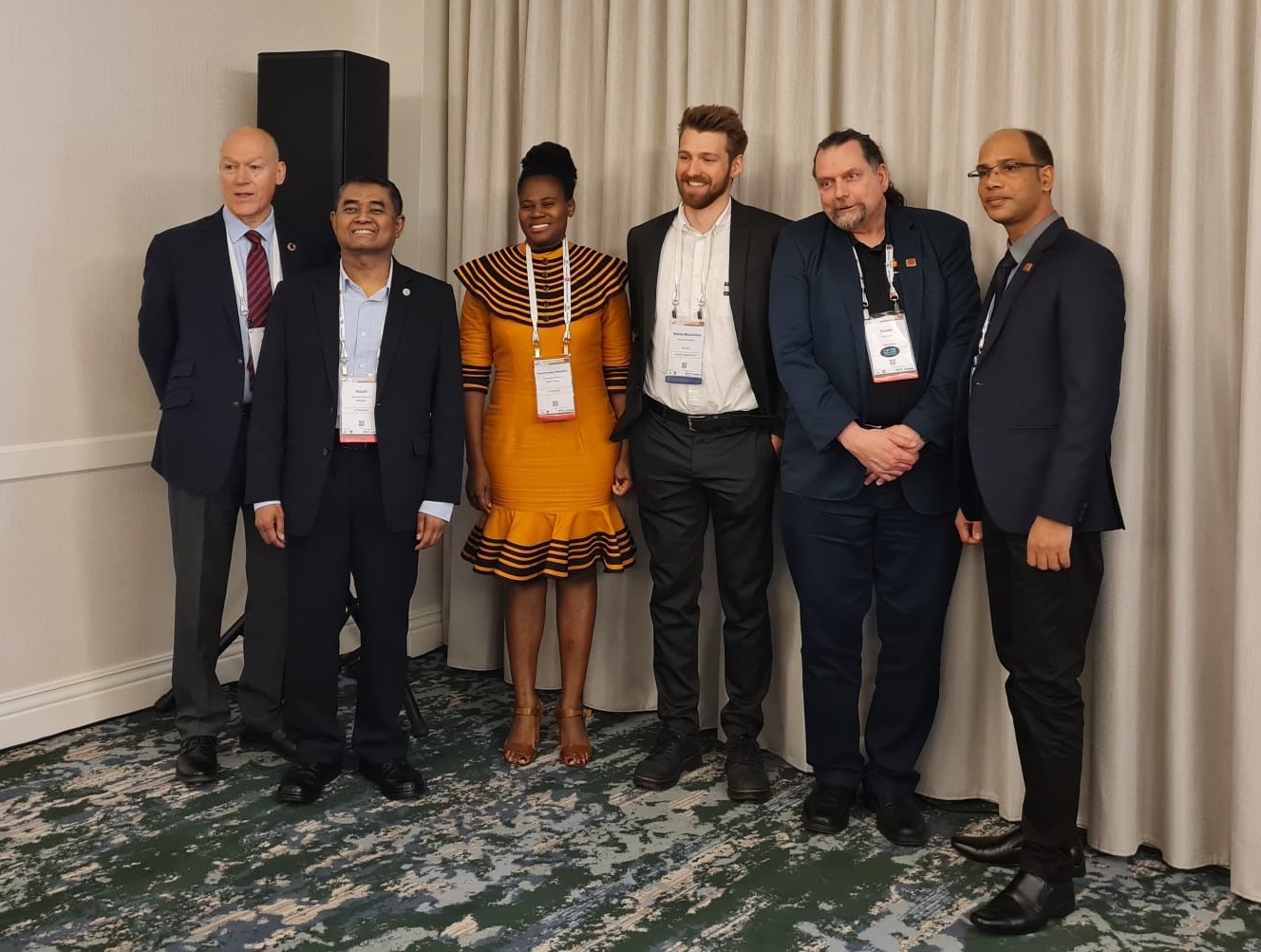From May 27th to June 1st, 2023, FIG Work Week 2023 was held in the enchanting surroundings of Disney World in Orlando, Florida, United States of America. Organized by the International Federation of Surveyors (FIG) and the National Society of Professional Surveyors (NSPS), the event provided a high-level platform for experts and professionals from the surveying and land use planning industry to discuss important topics and present the latest developments. More than 1,000 participants from 85 countries were in attendance.
From Saturday, May 27th, on three different two-day workshops were held prior to the main event. One workshop offered participants the opportunity to gain in-depth insights into the topic of Uncertainty and Quality of Multi-Sensor Systems. Here, various experts and interested parties shared their knowledge and discussed current developments, challenges and best practices. Topics ranged from modern measurement technologies to advanced analysis methods. Another workshop was aimed specifically at young surveyors and offered them a platform for mutual exchange and global networking under the motto Moving Beyond Boundaries. A charity event was also organized where participants played a bingo game. Another workshop focused on the important topic of Reference Frames in Practice. Participants had the opportunity to deepen their understanding of reference systems by interacting with leading experts in the field.
On Sunday, May 28th, the main event began in the afternoon with a spectacular opening ceremony. After a warm welcome by co-conference chair Timothy Burch and an introductory presentation by FIG President Dr. Diane A. Dumashie, local surveying history came alive in a keynote address. This included a presentation on surveying and mapping during the creation of Disney World in Orlando. Native American representatives deepened the experience of American culture by demonstrating traditional dances.
The following conference days began each morning with plenary sessions on a variety of relevant topics, including Protecting Our World, Conquering New Frontiers, and Addressing Global Challenges. These sessions offered valuable insights into the current challenges and opportunities facing the surveying industry. The plenary sessions were followed by the technical sessions. Each day included three blocks of up to ten parallel sessions on various special topics with a total of about 300 presentations.
The sessions on hydrography in particular attracted the interest of 25–30 participants. Although one scheduled session had to be cancelled at short notice, another session entitled Conquering New Frontiers of Hydrography featured four expert presentations on different hydrography-related topics. Nontuthuzelo Ntshabele emphasized the importance of sustainable use of marine data in her presentation Towards Identifying Fundamental Datasets and Associated Data Custodians for Marine. Daniel Roman presented a new definition of the 2020 International Large Sea Date for dynamic heights. Mohd Razali Mahmud presented the challenges of using satellite-based bathymetry in Malaysia, focusing on bathymetric mapping. In the final presentation, Niklas-Maximilian Schild reported on research on Subsea Pipeline Tracking Using a Forward-Looking Imaging Sonar for Autonomous Underwater Vehicle.
In addition to the FIG Commission 4 (Hydrography) sessions, other sessions addressed topics relevant to hydrography. The navxperience award for the best peer-reviewed paper went to Johnson Oguntuase, Uchenna Nwankwo, and Stephan Howden (USA) for their research on offshore water level measurement with low-cost GNSS antennas, presented under the title Affordable GNSS PPP Results as Constraints for Pressure Time Series Offshore.
In addition, the annual meeting of Commission 4 was held on a smaller scale, where eight experts met to discuss specific topics and share common goals. Discussions centered on improving training under the FIG-IHO-ICA’s International Board on Standards of Competence for Hydrographic Surveyors and Nautical Cartographers (IBSC) Category A or B program. Trends in hydrography related to automation and other aspects such as determination of sea time were considered. The importance of hydrography within the geodetic community was also been highlighted. Monitoring climate impacts and environmental damage expands the traditional field of work and provides critical information for a prosperous society.
Parallel to the conference, an accompanying exhibition was held where companies and organizations presented their latest technologies, products and services. This allowed participants to learn about the latest trends and innovations in the industry and to discuss exciting topics with various companies.
In the evening hours, numerous social events offered attendees the opportunity to expand their networks and exchange informal ideas. Throughout the event, there were welcome receptions, various informal gatherings, commission dinners, and finally the FIG Working Week Dinner as an “American Evening”. A joyful preview of the 2024 FIG Working Week in Accra, Ghana (May 19th–24th, 2024), was given during the farewell reception.
There is no doubt that the FIG Work Week 2023 was a resounding success and left a lasting impression on the participants. The event provided a wealth of valuable insights, facilitated the sharing of best practices, and fostered international collaboration within the surveying community.
